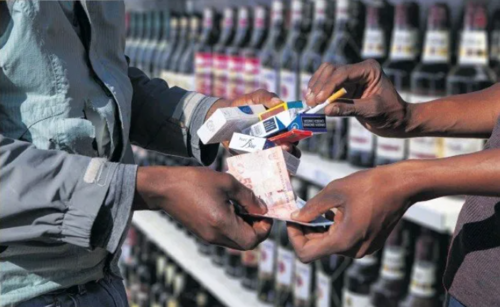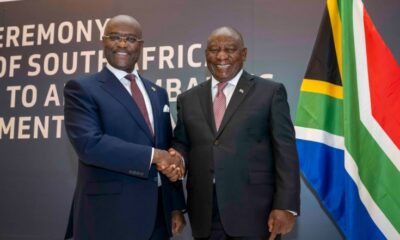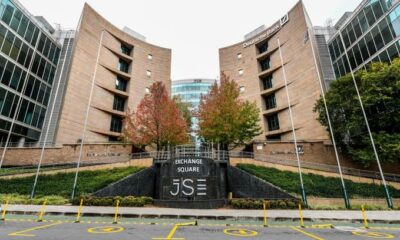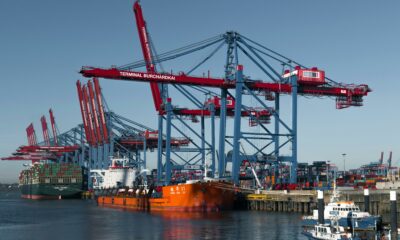411
South Africa Bleeds Billions to Illegal Trade as Government Faces Revenue Shortfall

South Africa is grappling with a growing economic crisis as billions of rands are lost each year to illicit trade, particularly in tobacco and alcohol. A new report reveals that these illegal markets alone cost the country over R30 billion annually in lost tax revenue, worsening a public finance shortfall and undermining efforts to restore investor confidence.
The South Africa Illicit Economy 2.0 Report, released by the Transnational Alliance to Combat Illicit Trade (TRACIT) in collaboration with Business Unity South Africa (BUSA), paints a sobering picture. The report warns that illegal trade is not just an economic issue—it’s also threatening the country’s governance, institutional credibility, and international standing.
“Illicit trade continues to pose a serious threat to South Africa’s economic stability, governance, and international standing,” the report noted.
The problem goes far beyond alcohol and cigarettes. South Africa’s underground economy includes illegal activity in pharmaceuticals, food items, agri-chemicals, mining, wildlife trafficking, and counterfeit goods. Yet it’s the illicit tobacco and alcohol trade that is especially damaging to the fiscus.
VAT Reversal Adds Fuel to the Fire
Finance Minister Enoch Godongwana’s recent decision to reverse a proposed 0.5 percentage point VAT increase is expected to leave a R75 billion hole in the national budget. In this context, the losses from illegal trade are particularly hard-hitting.
With the government now needing to find alternative ways to shore up revenue, cracking down on illicit markets has never been more urgent.
Grey Listed and Under Pressure
The timing of this crisis could not be worse. South Africa is still reeling from its grey listing by the Financial Action Task Force (FATF) in February 2023 for failing to meet international standards on anti-money laundering and illicit financial flows.
Although the National Treasury claims that 20 of the 22 FATF-flagged items have been addressed, South Africa still needs to demonstrate a “sustained increase in investigations and prosecutions” related to complex financial crimes—including the very kind enabled by illicit trade networks.
The FATF requires proof that the country is cracking down on professional money laundering networks and third-party enablers—entities often deeply embedded in the very systems that allow illegal tobacco and alcohol trade to thrive.
TRACIT’s Action Plan: A Path to Recovery
To help stem the losses and restore financial integrity, TRACIT has laid out a comprehensive action plan for the South African government. Key recommendations include:
-
Appointing a national Anti-Illicit Trade Coordinator to improve inter-agency coordination.
-
Tightening anti-money laundering controls tied to tax fraud, smuggling, and trade mispricing.
-
Reforming tax policy to reduce incentives for informal trade and improve overall compliance.
-
Modernising regulatory frameworks, especially around e-commerce and digital platforms.
-
Fighting corruption in customs, law enforcement, and the judiciary.
-
Building public-private partnerships to support consumer education, brand protection, and enforcement.
These measures, TRACIT argues, could help plug the revenue gaps and improve South Africa’s chances of exiting the FATF grey list by the October 2025 deadline.
The Cost of Inaction
Every year that South Africa delays meaningful action, billions of rands are lost—funds that could be used to improve infrastructure, healthcare, education, and employment. In a time of fiscal tightening and global economic uncertainty, the country cannot afford to let these illegal markets flourish unchecked.
Restoring investor confidence, strengthening public institutions, and stabilising the economy will require bold action—and the fight against illicit trade is a critical part of that mission.
{Source: DFA}
Follow Joburg ETC on Facebook, Twitter , TikTok and Instagram
For more News in Johannesburg, visit joburgetc.com


























